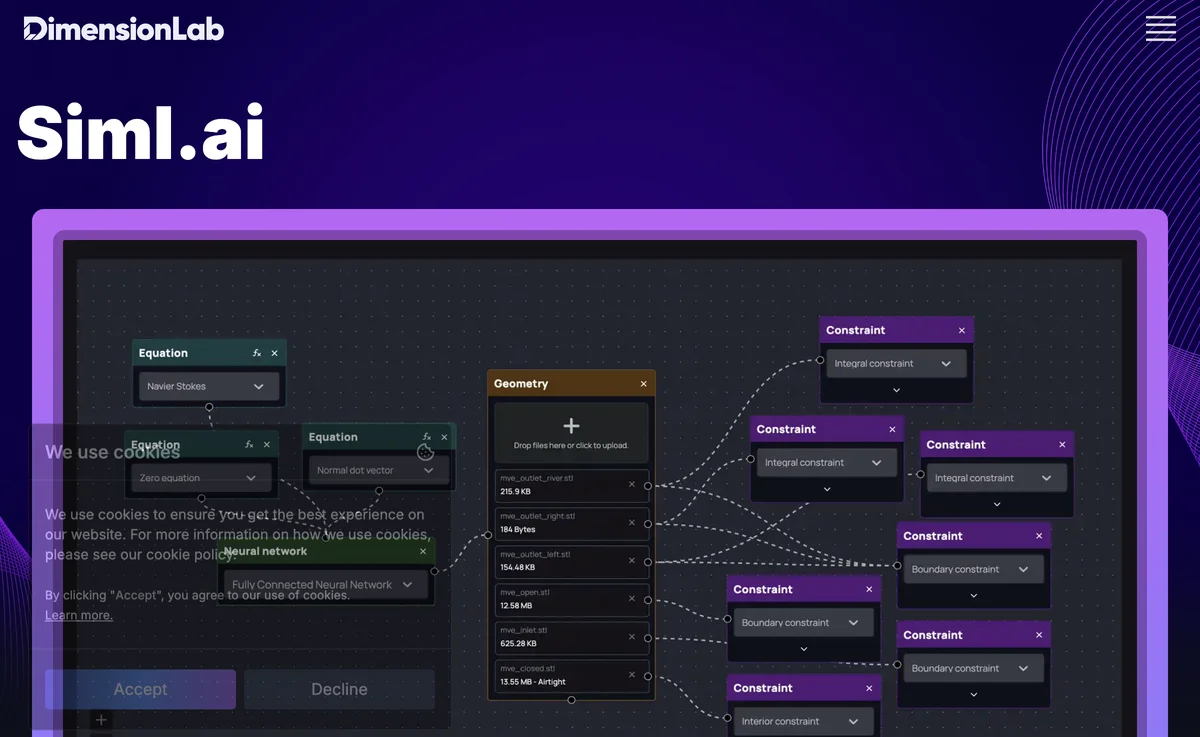Siml.ai revolutionizes the way engineers and researchers approach physics simulations by leveraging state-of-the-art machine learning technologies. This innovative platform offers a seamless experience for creating high-performance AI-based numerical simulators, significantly reducing the time and cost associated with traditional simulation methods. With Siml.ai, users can tame the physics of their projects in hours, not weeks or months, thanks to its fast AI-based simulators that respond to input in real-time for interactive visualization.
The platform is entirely web-based, eliminating the need for complex installations or being tied to specific platforms. This accessibility ensures that users can focus on their simulations without worrying about the underlying infrastructure. Siml.ai also offers painless scalability, handling the complexities of setting up cloud or high-performance computing (HPC) infrastructure, making it easier for users to scale their simulations as needed.
At the core of Siml.ai are two main components: the Model Engineer and the Simulation Studio. The Model Engineer allows users to train and optimize extremely fast physics simulators using deep learning techniques, manage datasets, and develop model architectures tailored to specific physical constraints. The Simulation Studio, on the other hand, enables users to leverage trained AI simulator models for solving complex engineering and scientific problems, creating interactive, physics and data-driven digital twins.
Siml.ai's superfast simulations, powered by trained neural network models, achieve speedups of 1,000-100,000x compared to classical simulation software running on GPUs. This incredible performance, combined with interactive "in-situ" visualization and high-fidelity rendering powered by Unreal Engine, provides users with a cutting-edge tool for visualizing and understanding physical phenomena.
By democratizing access to scientific-grade simulation tools, Siml.ai empowers engineers and researchers to incorporate physics-based simulations into their workflows, regardless of their technical skills. Join the Siml.ai community today and experience the future of physics simulations.

